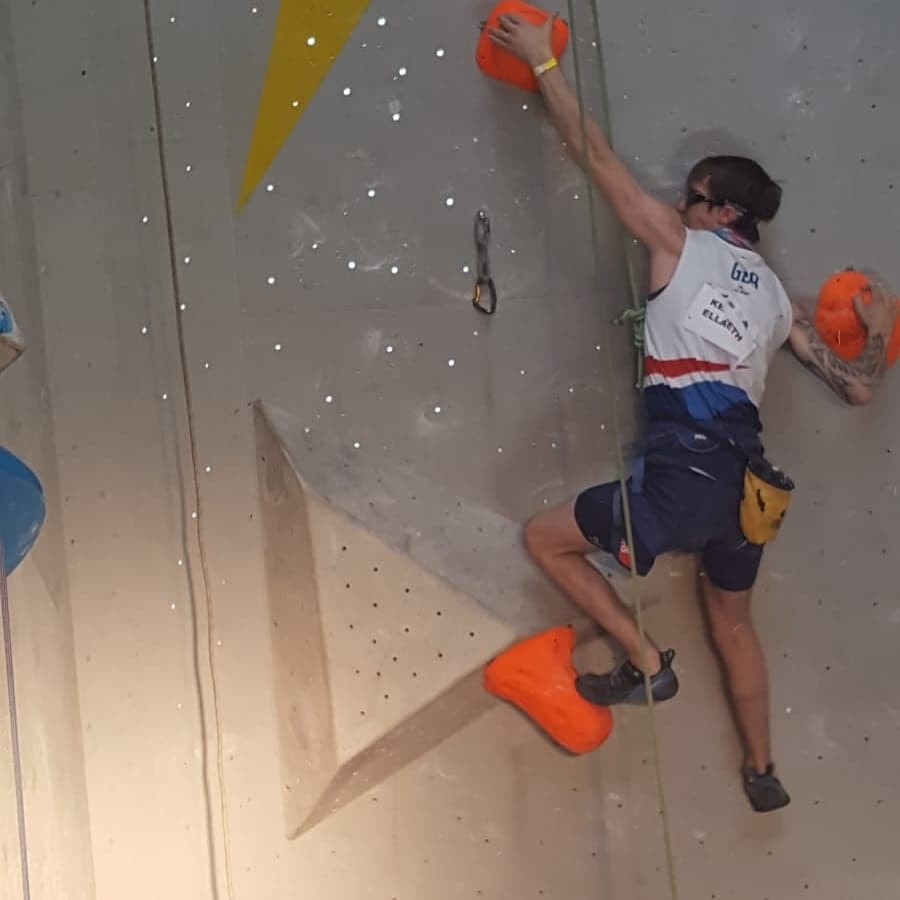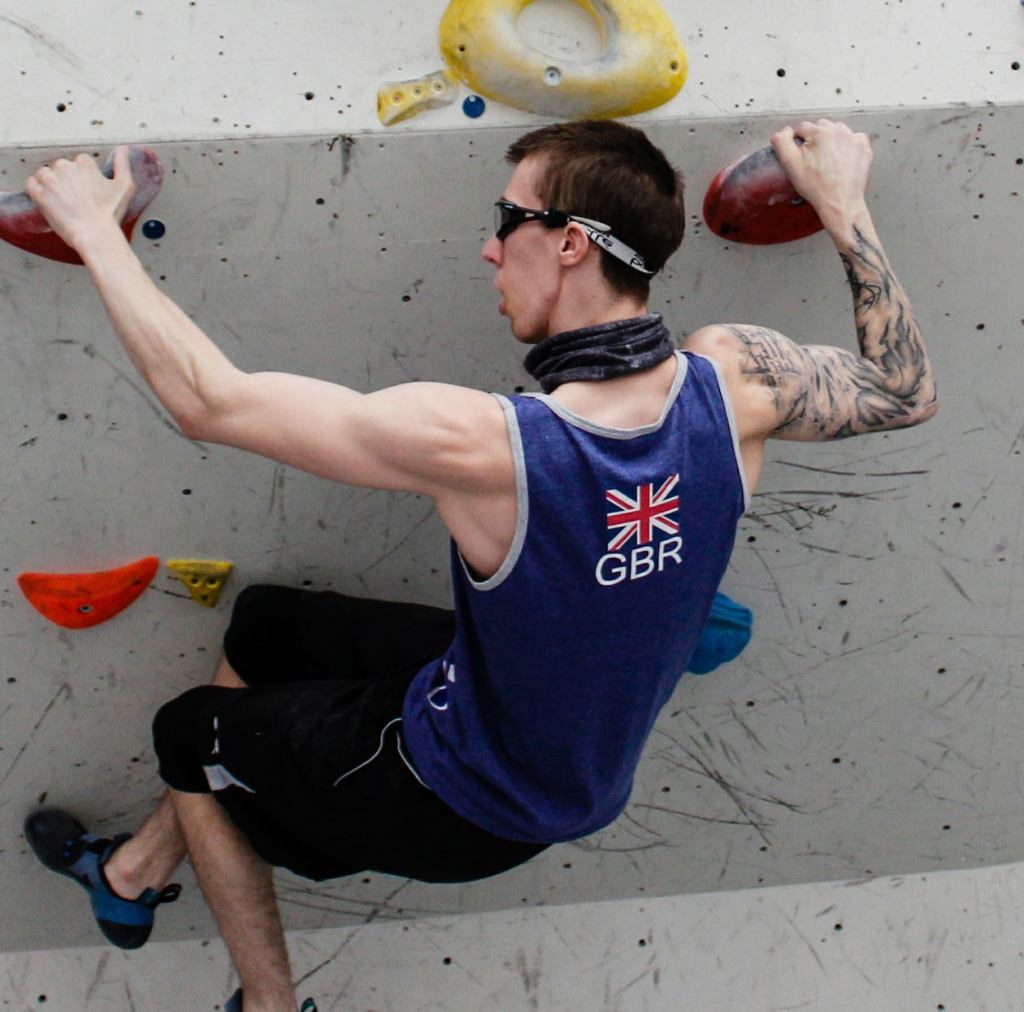In 2012 Kenneth Ellacott, then 21, experienced a terrible brain injury. He woke up in hospital unable to move or talk and could only see out of one eye.

Kenneth had been in an accident. He had fallen and a steeplechase hurdle had landed on the back of his head. He fractured the base of his skull which was pushing against an artery in his brain. He was told there and then that it was inoperable as this would create further brain damage.
Kenneth had a stroke and was induced into a coma to help him recover. Six months passed whereby he moved around three different hospitals. He learnt to walk again. However, he was constantly falling over and consistently being told off by the medical team. Even so, he never stopped trying.
“One thing I will never forget from my time in the hospital was when the doctors told my parents that I will never be able to live a normal life and will always require help. I remember saying to myself that I don’t believe what the doctors say – I can be better than before my injury.”
Astonishing
He wanted to show the doctors they were wrong. As a former athlete, he wanted to see if he could get a place in the London Marathon, although he could not run. He could only walk without help. To his astonishment, Kenneth received an email explaining that he’d got a place. He was in the London Marathon. “I thought running a Marathon in two months, is that a wise choice as I will leave the hospital only three weeks before race day?” Kenneth explains.

Fast forward two months, Kenneth ran the London Marathon. He crossed the finishing line in an astonishing time of four hours.
Left with permanent damage, the left side of his body is always painful, his left eye has only 30% vision and he cannot hear out of his left ear but he never let his challenges stop him. And there was more to come.
In 2015 Kenneth found climbing. He was studying towards his undergraduate degree and a university friend suggested that they go bouldering (a form of free climbing often on artificial walls). He went thinking he would be able to attempt the sport with the use of only one hand.
He soon caught the climbing bug and noticed that it was helping him manage his pain levels and enabling his left hand to work. After a year he entered a climbing competition for paraclimbers in London and came second.
This spurred him on to train harder. A year later, he was leading in his category and was chosen for the GB Paraclimbing Team. Kenneth became the UK number one and sixth in the world.
Kenneth was invited to compete in more advanced categories and was competing against able bodied climbers, though he and his coach were not impressed, believing it to be an incorrect categorisation. Nevertheless, he did not let this stop him. Continuously persevering, Kenneth was now 16th in the world. Experiencing ups and downs in his training, he has also attempted wheelchair basketball and para-rowing though he admits that nothing can replace climbing and he is now climbing two to three times a week and visiting the gym regularly – while also enjoying using his experience and knowledge to help teach climbing.
“Without climbing, I would not be who I am today. Without climbing, I would not have met my beautiful wife. Without climbing, I would not have become strong. Without climbing, I would probably still be in bed.”
With an undergraduate degree, a Masters degree and a postgraduate diploma under his belt, Kenneth works for the NHS supporting patients on a mental health ward. His dream is to be an international climber again, training with his wife Anoushé Husain, also an amazing paraclimber.
“I proposed at a climbing wall in the middle of a competition. I hid the ring at the top of the wall. On the floor, roses were leading to the route. When she arrived at the top I had large cards in my hands asking her to marry me.”
Kenneth has a dream to continue climbing all over the UK and to explore more outdoor climbing routes since it requires a lot more thought about reaching the top and finding the right holds to use.

For people who want to try climbing but are too afraid, Kenneth explains, “The first step into climbing is going through the door of the centre. Find a club near you and ask for assistance. They may be able to help you with equipment and teaching. You’ll never know until you try. Never give up, never say you can’t do something.”
Follow Kenneth on Instagram: @Kennethparaclimbing
Get into paraclimbing
Climbing should always be done in an appropriately safe environment and under the guidance of people with the correct experience, training and where the right equipment is available. Best advice is to seek out climbing clubs and centres near you to discuss your needs.
Find a club
The Parasport webpage is a campaign to connect disabled people with more opportunities to get active than ever before. It can be used to help find clubs in your area.
www.parasport.org.uk
GB Climbing
GB Climbing manages the GB climbing teams, talent and performance pathways, national and international competition events in the UK, and promotes the future of the sport.
GB Climbing is run by the British Mountaineering Council (BMC). The BMC is the national governing body for sport climbing in the UK and is recognised by the International
Federation for Sport Climbing (IFSC).
www.gbclimbing.uk



